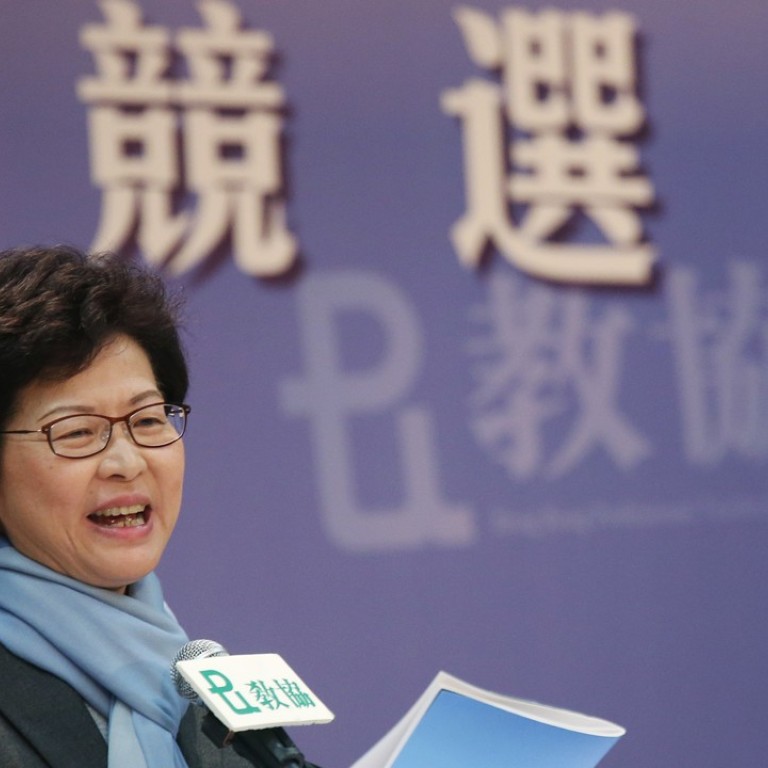
Carrie Lam promised Hong Kong a children’s commission, but it must have the power to make a difference
Part of Chief Executive Carrie Lam Cheng Yuet-ngor’s election platform was a pledge to establish a children’s commission.
It is important that we get a children’s commission capable of making a difference, one that does not squander resources and is not mired in bureaucracy. A round-table discussion was held on September 23, with the Hong Kong Committee on Children’s Rights and co-organised by six professional groups – the Hong Kong Paediatric Foundation, Hong Kong Professional Teachers’ Union, Council of Social Service, Hong Kong Human Rights Monitor, Hong Kong Bar Association and the Law Society of Hong Kong. The participants agreed on six proposals. They were supported at a meeting held the following day, attended by nine legislators from seven political parties, child commissioners from Norway and Australia, and local advocates.
Hong Kong’s children’s commission must be given clear mandate, foreign experts say
They recommended, first, that the commission be given a large enough budget to ensure that it can help with the development and protection of children, especially those who are vulnerable.
Secondly, for it to be sustainable and productive, and so that it can maximise its resources, the commission must be a statutory body with legal mandates.
Third, it should work in partnership with government, but be independent, so that it can present honest, objective and proactive views. This will enable it to act in the best interests of children and to effect a positive change of mindset.
Fourth, the actions and decisions made by the commission must be transparent, to maintain its credibility and ensure respect from the community.
Fifth, there must be active participation by civil societies, child advocates, and children in particular on the commission’s board and in the decision-making process. This will help to strengthen the function of the commission and enable it to have a progressive outlook, as seen from a child’s perspective.
Finally, evidence-based child rights studies and a children’s central data bank will be needed to trace trends, facilitate an action plan and make projections for the allocation of resources.
I hope these elements will be included in the policy address next week when Mrs Lam talks about her plans for the children’s commission.
Priscilla Lui Tsang Sun-kai, chairperson, Hong Kong Committee on Children’s Rights

